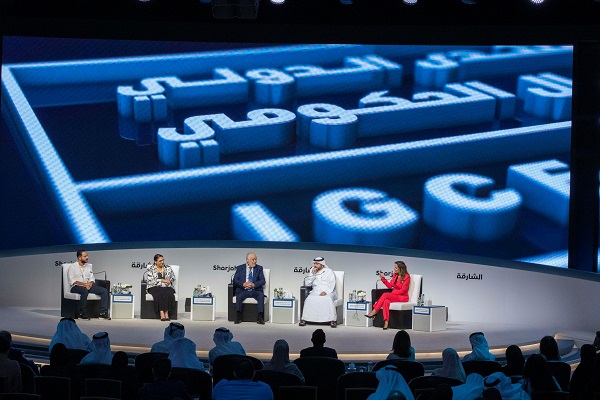The Arab theatre artists and producers have discussed the global reach of Arab drama and television programming at Expo Centre Sharjah.
During the opening day of the 11th International Government Communication Forum at Expo Centre Sharjah, Mohammed Hassan Khalaf, Director General of Sharjah Broadcasting Authority (SBA), participated in a panel discussion titled “Drama between Intellectual and Linguistic Structures”.
He said that “the key goal is to be ourselves, then we will reach the audience”.
Moderated by Lana Al Jundi of Sky News Arabia, other panel members on the session included well-known artists Dr Ashraf Zaki, head of the Egyptian Actors Syndicate; Peter Mimi, Egyptian filmmaker and author; and Asmahan Tawfiq, actress and scriptwriter. The discussions focused on Arab drama and its reach in the pan-Arab world.
Khalaf said that creativity is important in any drama, and noted that his organisation kept abreast of developments across the world and took appropriate measures to produce exciting and creative content. He pointed out the popularity of the historical award-winning drama Khorfakkan, the debut film production by SBA in 2020, which was based on a historical book written by Sheikh Dr Sultan bin Muhammad Al Qasimi, Supreme Council Member and Ruler of Sharjah.
“When presenting themes for the Arab consumer, we should not forego our authenticity. Arabic drama should not be an imitation of the West,” stated Khalaf.
Dr Ashraf Zaki pointed out that Arab drama is making huge strides in the region although “sometimes we find a mix of average and extremely artistic works.”
“Our success lies in presenting ourselves as who we are. This is something that can be achieved through the quality of our unique content, not money,” he added, while pointing out the universal relevance of the Shakespearean drama.
“Drama is the pulse of society,” added the Egyptian actor. “The role of drama is not only to entertain but also bring about a change in systems, rules and behaviour.”
Actress and scriptwriter Asmahan Tawfiq referred to Egypt’s rich literature and the support it received from the government previously. Pointing out that theatre is a reflection of society, Tawfiq said she continues to use the old methodology for script writing.
“We had a set pattern for production based on whether it was historical, religious, or representing other themes,” she stated. “I believe it is important for the West to watch our productions while we must work on presenting our authentic culture.”
Peter Mimi noted: “The entertainment component is what pushes the audience to watch drama, while graphics and visuals also play a big role. If we want the audience outside the Arab world to watch our drama, it should be directed in line with global standards.”

















































































